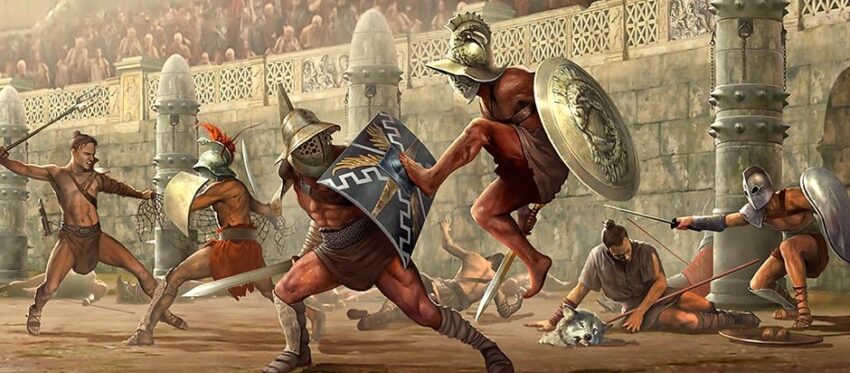
The Spicy Potion
We should reconsider cruelty
and open our eyes…
Almost everything we call “higher culture”
is based upon the spiritualization and deepening of cruelty:
This is my proposition. That wild beast has not really been killed;
it lives and flourishes, it has merely become — divine.
What constitutes the painful voluptuousness of tragedy is cruelty;
what seems agreeable in so-called tragic pity, and at bottom
in everything sublime, up to the highest and most delicate shudders
of metaphysics, receives its sweetness solely from the admixture of cruelty.
What the Roman in the arena, the Christian in the ecstasies of the cross,
the Spaniard at the stake or a bullfight, the Japanese of today when he flocks
to tragedies, the laborer in a Parisian suburb who feels nostalgia
for bloody revolutions, the Wagnerian who “submits” to Tristan and Isolde,
her will suspended – what all of them enjoy
and seek to drink in with mysterious ardor are the spicy potions of the great Circe,
“cruelty.” To see this we must, of course chase away the clumsy psychology
of bygone times which had nothing to teach about cruelty
except that it came into being at the suffering of others.
There is also abundant, overflowing enjoyment of one’s own suffering,
at making oneself suffer.
–excerpt Beyond Good and Evil, §229, by Friedrich Nietzsche
Man is the cruelest animal.
At tragedies, bullfights, and crucifixions he has so far
felt best on earth;
and he invented hell for himself, behold,
that was his heaven on earth.
–excerpt Thus Spoke Zarathustra, pt. 3, Convalescent, §2 by Friedrich Nietzsche
A friend suggested that I write more of my own mind, perhaps quoting from others less… No question that writing or saying anything is a balance between giving others their due, and expressing what one makes of ideas received from others, attempting description of what one sees, feels, believes… Failing, only to try again to find the right words of expression for the participation of one troubled guy in “life.” I am the troubled guy.
My personal experience with cruelty is extensive. A child is innocent, helpless, utterly dependent upon nearby adults for absolutely everything. Food, shelter, clothing, and I am tempted to say, affectionate attention ranks as important as those basics for physical survival. Inattention by the adults at hand, amounts to cruelty for the child. Moreover the public education experience can be laced with cruelty for some children. Bullying. If proximate adults fail to take note and insist upon respect for others, a predator and prey dynamic takes root in the classroom, in hallways, gymnasium, or playground. I remember reading William Golding’s Lord of the Flies.
Perhaps that all seems abstract, philosophical, even psychological. I’d like to suggest the general outlines of my experience with cruelty. I do not believe my experience is unique, by any means unusual.
Questions to which I remain tethered: Why do I feel pleasure at a NFL football game, a contest between adult male individuals who have dedicated themselves to a game that will afford fame and wealth and measurably shorten their lifespan, or cripple in the course of play? I enjoy what amounts to a blood-sport.
And there’s this. The video capturing the traffic stop encounter between Tyree Nichols and Memphis police officers on January 10th is a study in taking pleasure in the killing of a designated victim. In those moments when Nichols was held down while being tazed and beaten, the pleasure taken by the six officers, the white officer included, is obvious to me. History and current events show cruelty interlaced with public order to be characteristic.
What about Circe? She was a goddess, renowned for her knowledge of potions. With her wand she would transform her enemies into animals. In Homer’s Odyssey on return from the Trojan war Circe changed most of Odysseus’ crew into swine. He manages to persuade her to return them to human shape, then lives with her for a year and has sons by her. Men often fall in love with a goddess, but this particular one…
We are yet in love with the great Circe.